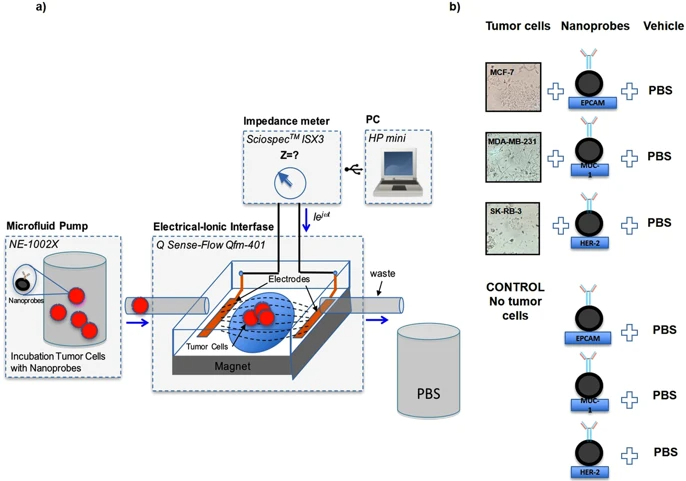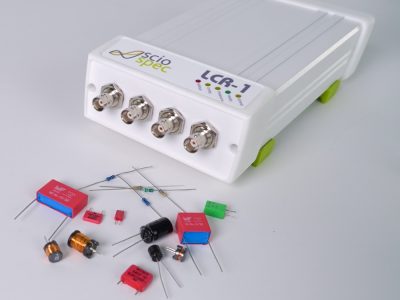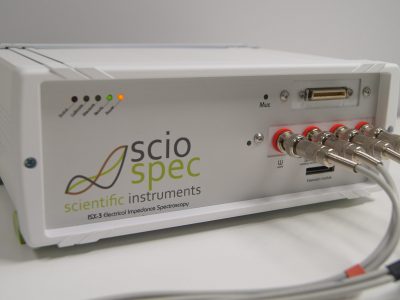Breast cancer (BC) is a malignant disease with a high prevalence worldwide. The main cause of death is not the primary tumor, but instead the spread of tumor cells to distant sites. The aim of the present study was to examine a new method for the detection of cancer cells in aqueous medium using bioimpedance spectroscopy assisted with magnetic nanoparticles (MNP’s) exposure to a constant magnetic field. The spectroscopic patterns were identified for three breast cancer cell lines. Each BC cell line represents a different pathologic stage: the early stage (MCF-7), invasive phase (MDA-MB-231) and metastasis (SK-BR-3). For this purpose, bioimpedance measurements were carried out at a certain frequency range with the aid of nanoprobes, consisting of magnetic nanoparticles (MNPs) coupled to a monoclonal antibody. The antibody was specific for the predominant cell surface protein for each cell line, which was identified by using RT-qPCR and flow cytometry. Accordingly, EpCAM corresponds to MCF-7, MUC-1 to MDA-MB-231, and HER-2 to SK-BR-3. Despite their low concentrations, BC cells could be detected by impedance spectroscopy. Hence, this methodology should permit the monitoring of circulating tumor cells (CTC) and therefore help to prevent recurrences and metastatic processes during BC treatment.
A biosensor capable of identifying low quantities of breast cancer cells by electrical impedance spectroscopy



